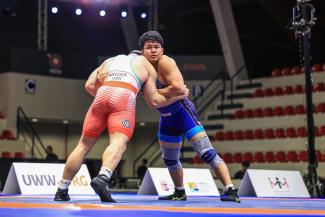Mandatory Licensing of Coaches to Take Effect January 1st
Monday, December 17, 2018 - 12:45 By United World Wrestling Press

CORSIER-SUR-VEVEY, Switzerland (December 17) -- United World Wrestling has sent a memo to all member federations and associations as a reminder that as of January 1, 2019 all coaches attending sanctioned events MUST have an annual license.
The message in full:
As of the 1st January 2019, all coaches attending United World Wrestling sanctioned competitions are requested to have an annual UWW license through the Athena system as per athletes and referees.
The license covers medical expenses abroad for your coaches attending the selected competitions and they must agree to the UWW code of ethics and conduct. The cost of the license is CHF 100.- per coach.
You will find herewith attached the sample of questionnaire that you will find in the Athena system which includes extracts of the UWW constitution and rules referring to the coaches conduct and behavior.
For any assistance you may require, please feel free to contact us at info@unitedworldwrestling.org
We remain at your entire disposal and thank you for your valuable collaboration.
To download the licensing and declaration form please click, here.


Share your thoughts.
Comments